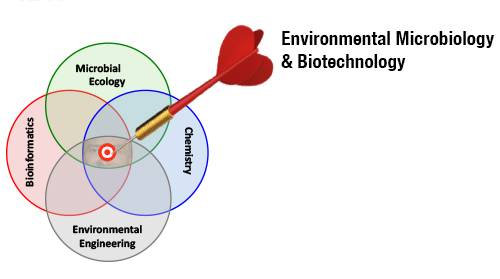THEME COLOR
MENU POSITION
OUR RESEARCH
Microbial Ecology and Systems Biology Approaches
Microbial ecology is a discipline that studies the relationship microbes have with
each other and with their environment. Pure culture studies are useful to learn about a process of
interest that the microbe under study catalyzes; however, such studies are generally insufficient
to understand how the microbe performs when embedded within a natural microbial community. The Löffler
lab applies a Systems Biology Approach to understand the ecology of microorganisms of interest. We
apply top-down (reductionist) approaches (e.g., enrichment and isolation) to separate system components,
which are then studied in isolation to unravel mechanistic details of processes of interest.
To explore the components’ functions in a natural community with dynamic interactions and
interrelationships with other components of the system, we apply bottom-up (system science)
approaches (e.g., metagenomics, metatranscriptomics, metaproteomics, metabolomics).
This biphasic approach generates detailed mechanistic understanding and informs about
the process in the context of the environment (i.e., in situ conditions). System science
approaches can develop dynamic, systems-level understanding of organism and community function.

Reductionist approaches alone cannot reveal the dynamic interactions with other components of the
system. For example, Dehalococcoides mccartyi (Dhc) strains catalyze key detoxification reactions but
cannot synthesize essential growth factors (e.g., corrinoid) required to assemble functional reductive
dehalogenase enzyme systems. Further, Dhc are limited to hydrogen as an electron donor, and depend on
fermenting organisms to supply hydrogen. Hence, Dhc activity can not be predicted and manipulated
without recognizing all interacting components and the system as a whole is understood.
